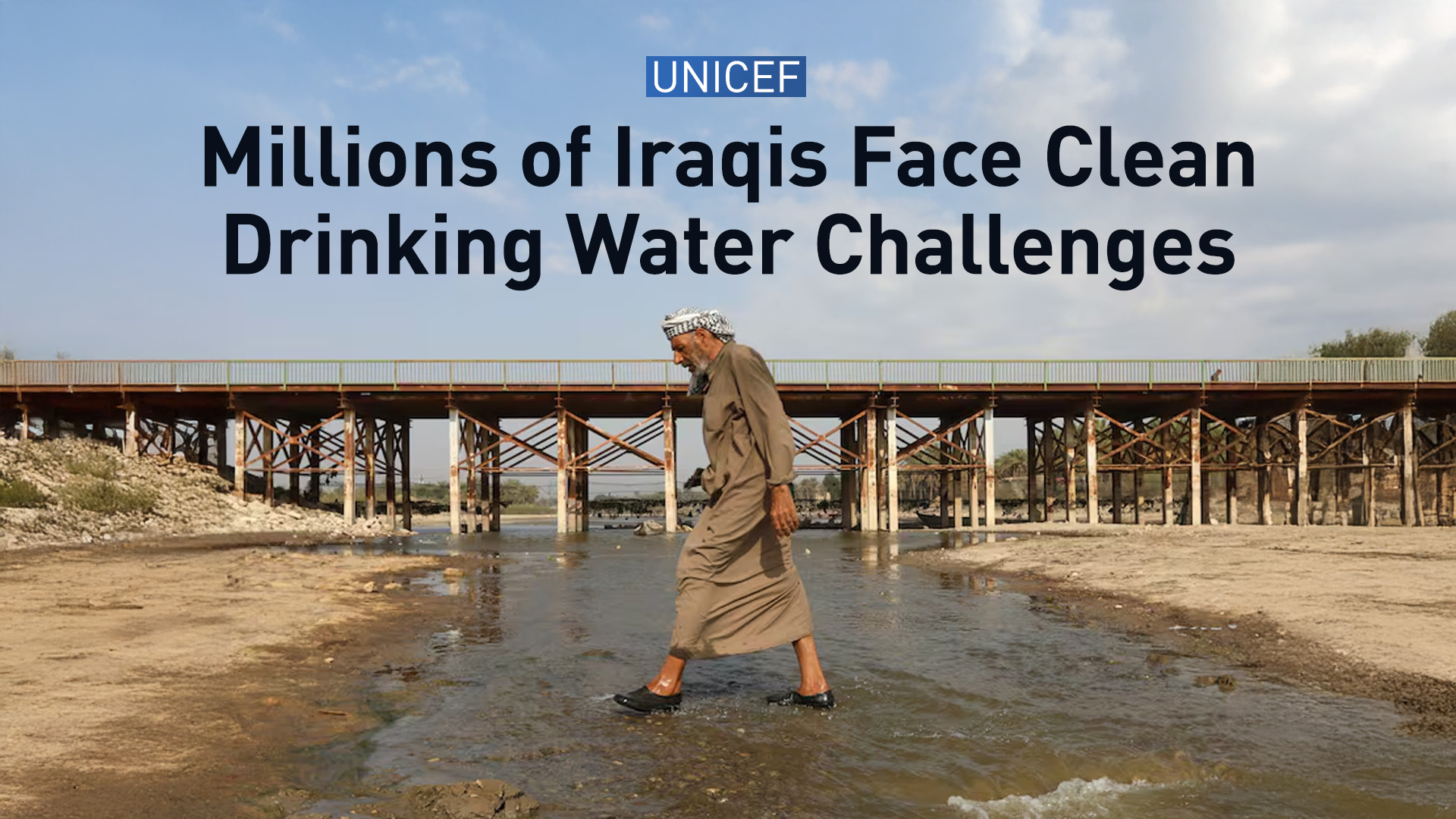'Millions of Iraqis Face Clean Drinking Water Challenges,' UNICEF
According to the World Bank, Iraq is among the top five countries globally most severely impacted by climate change. The bank estimates that Iraq will require over $233 billion in investment by 2040 to transition to a more resilient, greener, and inclusive path.

ERBIL (Kurdistan24) – On the occasion of World Water Day, the United Nations Children’s Fund (UNICEF) and Iraq’s General Directorate of Water issued a stark warning: millions of Iraqis, especially children, are struggling to access clean drinking water amid an escalating water crisis driven by climate change, declining river levels, and institutional challenges.
In a joint statement, UNICEF and the Iraqi Directorate called for immediate action to protect Iraq’s dwindling water resources. They reaffirmed their shared commitment to implementing sustainable solutions to address water scarcity, which is putting millions at risk of malnutrition, disease, and displacement.
“As we face increasing water scarcity, it is our responsibility to safeguard this valuable resource,” said Mr. Ammar Adel, Director General of Iraq’s General Directorate of Water and head of the National Water Team.
Abdel emphasized that the Directorate, in collaboration with UNICEF, has already begun work on a series of “strategic and vital projects.”
These include updating master plans for water distribution systems, implementing automated management systems to ensure fair and efficient distribution, and introducing water safety plans to guarantee safe drinking water for all. Awareness campaigns are also being launched to promote water conservation among the public.
UNICEF's Head of Water, Sanitation, and Hygiene Program, Eng. Ali Ayoub, explained the significance of the partnership, stating, “Our mission is to reach children in the most affected communities and ensure they have access to safe drinking water in a time of increasing water scarcity.” The initiative contributes directly to the achievement of Sustainable Development Goal 6: Clean Water and Sanitation.
The crisis, however, extends beyond immediate humanitarian concerns. According to the World Bank, Iraq is among the top five countries globally most severely impacted by climate change. The bank estimates that Iraq will require over $233 billion in investment by 2040 to transition to a more resilient, greener, and inclusive path.
Climate change is already reshaping Iraq’s environment. Fadhel al-Gharawi, head of the Strategic Center for Human Rights, stated that Iraq has lost more than 30% of its productive agricultural land due to rising temperatures, desertification, and drought.
In statements to the National Iraqi News Agency (INA), al-Gharawi noted that Iraq’s average temperature has increased by 1.2 degrees Celsius since the mid-20th century, with forecasts predicting an additional 2.5-degree rise by 2050 unless urgent mitigation steps are taken.
The per capita share of fresh water has dropped below 1,000 cubic meters annually, placing Iraq among countries suffering from severe water stress. Over the past decade, repeated droughts have devastated the agricultural sector and led to the desertification of 39% of Iraq’s land, with another 54% facing degradation risk. Levels of the Tigris and Euphrates rivers, Iraq’s primary water sources, have fallen by more than 50% compared to historical averages due to upstream water policies and lack of rainfall.
This environmental deterioration is compounding public health challenges. Air pollution is rising, particularly in Baghdad and Basra, where fossil-fuel dependency and increasing CO2 emissions—currently growing at an annual rate of 3%—are worsening respiratory illnesses.
Additionally, Iraq has seen a sharp rise in sand and dust storms, which now occur on average 272 days per year in some regions, a figure projected to rise to 300 days by 2030.
UNICEF and the Iraqi government’s coordinated response, while promising, faces enormous structural and climatic obstacles. Their call to action on World Water Day serves as a critical reminder of Iraq’s mounting environmental emergency—one that threatens not just the environment, but the country’s future stability, public health, and economic survival.